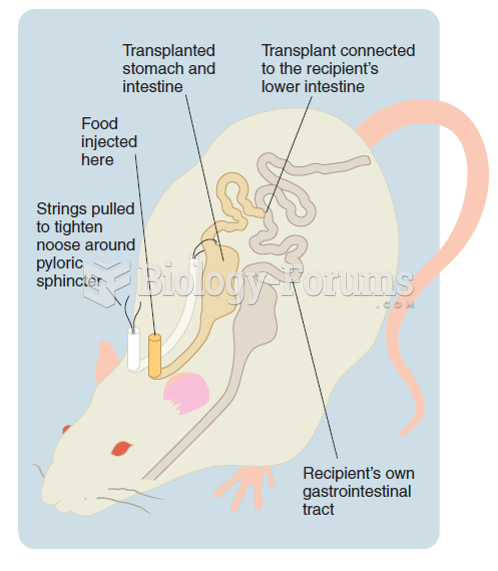|
|
|
According to the FDA, adverse drug events harmed or killed approximately 1,200,000 people in the United States in the year 2015.
When intravenous medications are involved in adverse drug events, their harmful effects may occur more rapidly, and be more severe than errors with oral medications. This is due to the direct administration into the bloodstream.
Adults are resistant to the bacterium that causes Botulism. These bacteria thrive in honey – therefore, honey should never be given to infants since their immune systems are not yet resistant.
Though “Krazy Glue” or “Super Glue” has the ability to seal small wounds, it is not recommended for this purpose since it contains many substances that should not enter the body through the skin, and may be harmful.
According to the National Institute of Environmental Health Sciences, lung disease is the third leading killer in the United States, responsible for one in seven deaths. It is the leading cause of death among infants under the age of one year.
 Testing the effects of long-term fertilizing on inter-actions between mycorrhizal fungi and plants o
Testing the effects of long-term fertilizing on inter-actions between mycorrhizal fungi and plants o
 Transplantation of an extra stomach and length of intestine in a rat. Koopmans (1981) implanted an ...
Transplantation of an extra stomach and length of intestine in a rat. Koopmans (1981) implanted an ...
 Transition from the lower to the upper limbs with compression over the drape. Apply compression with ...
Transition from the lower to the upper limbs with compression over the drape. Apply compression with ...




